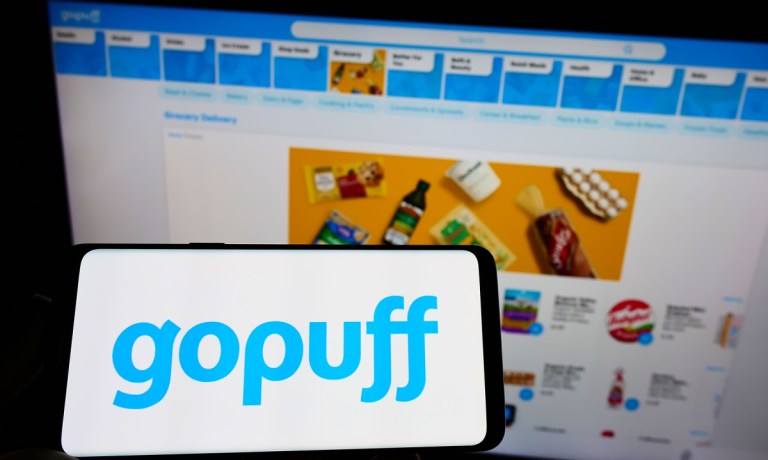Gopuff Doubles Down on Speed to Drive Paid Memberships

As on-demand delivery platforms compete to drive paid memberships in an effort to win consumers’ loyalty in the crowded space, Gopuff is looking to speedy fulfillment to boost engagement with its highest-value customers.
On Tuesday (April 2), the delivery platform launched FAM20, its 20-minute delivery benefit for members of its paid FAM membership program. In an interview with PYMNTS, Daniel Folkman, Gopuff’s senior vice president of business, noted that the option doubles down on the differentiating factor leading consumers to choose Gopuff over other on-demand delivery competitors.
“I think it’s important to note that the Gopuff model itself was designed for instant experiences,” Folkman said. “Among surveyed Gopuff customers, faster delivery was the most important reason they use Gopuff and the number one key differentiator customers identified for the Gopuff brand.”
He noted that consumers tend to turn to the platform on occasions when speed is a key priority, such as when they are “cooking and run out of something,” adding that, during the pilot test of this 20-minute delivery offering, the company saw a 10% rise in orders and members of the paid membership program leveraged the option 30% of the time.
The option costs members $1.49 per order. In the past, the economics of ultrafast delivery have not always gone so well. Throughout 2022 and early 2023, there was a spate of shutdowns and acquisitions. It was not only young startups facing challenges in the space — even players with established audiences and delivery networks have retreated from the category. Last summer, DoorDash shut down its 15-minute delivery test.
Perhaps by making the benefit exclusive to paid members for an additional fee, Gopuff may be able to make the economics work more favorably.
Folkman contended that the company’s micro-fulfillment centers (MFCs) are built “to enable an efficient order prep process,” with small formats and highly trained employees enabling speedy picking and packing, and with the company’s single-pickup-point model allowing for “extremely” efficient order batching. Additionally, he asserted that, with the company’s vertical integration, its fulfillment becomes “even more efficient with scale.”
Certainly, many consumers are seeking out digital convenience. The report “2024 Global Digital Shopping Index: U.S. Edition,” a PYMNTS Intelligence and Visa Acceptance Solutions collaboration, which draws from a census-balanced survey of more than 2,400 U.S. consumers, reveals that more than 1 in 4 shoppers prefers to make purchases via digital channels with no interaction with physical stores. Plus, the study found, U.S. consumers rely highly on a broad range of digital features, with 85% using multiple features regularly.
Looking ahead, Folkman predicts that memberships and loyalty programs will only continue to gain share in retail, and innovating on such programs will be the way to drive success going forward.
“Loyalty programs are a great way to engage with and strengthen relationships with a company’s best customers,” Folkman said. “A year from now, loyalty programs will be even more important than they are today. … Of course, loyalty programs must deliver more of what customers actually want and need, so data and insights-driven programming will succeed.”